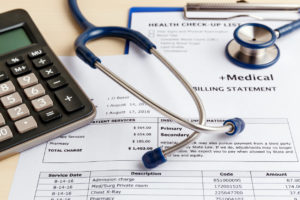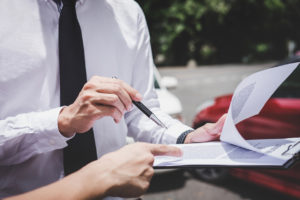
After a car accident, you could face medical bills, therapy bills, and prescription costs. You might also have expenses that do not fall neatly into any of these categories.
Logically, you should not have to pay anything for an injury that someone else caused. On the other hand, some of these expenses relate to necessary products and services.
Read on to learn some types of out-of-pocket expenses you will incur after your car accident and which expenses you can get reimbursed by the insurer.
Insurance Claims After a Car Accident

Florida uses a no-fault system of auto insurance. Under a no-fault system, your insurer must provide medical and disability benefits when you get injured in an accident.
Your insurer pays these benefits regardless of fault. This guarantees that you will have (in most cases) at least $10,000 in medical and disability benefits for car accident injuries, even if you caused the car accident.
The downside to this guarantee is that, unless you fall into an exception to the no-fault requirements:
- You lose the right to file a lawsuit against the person who caused your injury
- You must usually start with a no-fault insurance claim
- You will only receive 80% of your medical expenses and 60% of your lost wages
If you do fall into one of the exceptions to the no-fault system, you can file a claim against the at-fault driver’s liability insurance. Filing a liability claim against the at-fault driver expands the compensation you receive to include 100% of your:
- Medical expenses and lost wages
- Pain and suffering damages
- Reasonable and necessary out-of-pocket expenses
No-fault insurance does not cover most out-of-pocket expenses. It only covers medical benefits, disability benefits, and death benefits. If an expense does not fall into these categories, your insurer will probably not pay it.
Liability insurance will cover many categories of out-of-pocket expenses. These expenses must be reasonable and necessary based on your injuries and your accident. “Reasonable” means that you did not overpay for the product or service. “Necessary” means that the expense was needed based on your injuries.
Categories of Out-of-Pocket Expenses
Your out-of-pocket expenses must logically relate to your accident or your injuries to get reimbursement. Some categories of out-of-pocket expenses liability insurance might cover include:
Expenses Related to Medical Treatment
When you pay for something out-of-pocket relating to your medical treatment, you can seek reimbursement. Some expenses that fall into this category include:
- Transportation to and from medical appointments
- Over-the-counter drug costs
- Medical equipment rental
- Travel expenses, including fares, parking, and hotels — to reach doctors
If you used your health insurance to cover your medical treatment, therapy, and prescription drugs, you also incurred copays or had to meet a deductible. In either case, these unreimbursed medical expenses constitute out-of-pocket medical expenses that liability insurance will cover.
For the expenses to qualify as reasonable and necessary, they must relate to an injury suffered in your accident. The expenses must also treat or rehabilitate your injury.
Oftentimes, this analysis will give unpredictable results. For example, an insurer might cover out-of-pocket expenses for chiropractic adjustment but not massage therapy.
Expenses Related to Disabilities
Liability insurance will cover reasonable and necessary expenses relating to the effects of your injuries on your ability to work and meet your daily needs. Some examples of out-of-pocket expenses relating to your disabilities include expenses for:
- Transportation, such as rideshares or taxis
- Grocery delivery
- Caretakers
- Home healthcare
- Replacement services, like childcare, cleaning, or cooking
- Home modifications, such as wheelchair ramps or grab bars
To satisfy the “reasonable and necessary” test for reimbursement, you must show that the expense relates to the disability suffered due to your injury. If you want the insurer to pay for childcare, you will probably need to show that your injuries prevented you from caring for your children.
Sometimes, the nature of the injury will support your expense. Thus, a diagnosis of post-traumatic stress disorder (PTSD) after your accident might justify having your groceries delivered instead of driving yourself.
Expenses Related to Property Loss
After your car accident, you probably had to do without a car for at least a short time. You might have also lost property in the accident, like your phone or prescription glasses.
You can get reimbursed for out-of-pocket expenses relating to property lost in the accident. Some examples include amounts paid for:
- Car rental
- Transportation
- Replacement personal items
For these expenses, the necessity of the expense will probably pose the greatest hurdle. If you rented a car simply because you thought your car was not safe to drive, an insurer might not reimburse the expense. But if your car was in the shop or totaled, a car rental would constitute a reasonable and necessary expense.
Claiming Out-of-Pocket Expenses
To claim out-of-pocket expenses, you will need to document them. Keep receipts for your expenses. You might also make a note to remind yourself why you incurred the expense. Thus, you might write on a drug store receipt that you bought a cold pack and a bottle of ibuprofen for the wrist you sprained in your car accident. To discuss the out-of-pocket expenses you can claim as damages in your injury claim, contact the Brannon & Brannon Car Accident & Personal Injury Lawyers for a free consultation.


